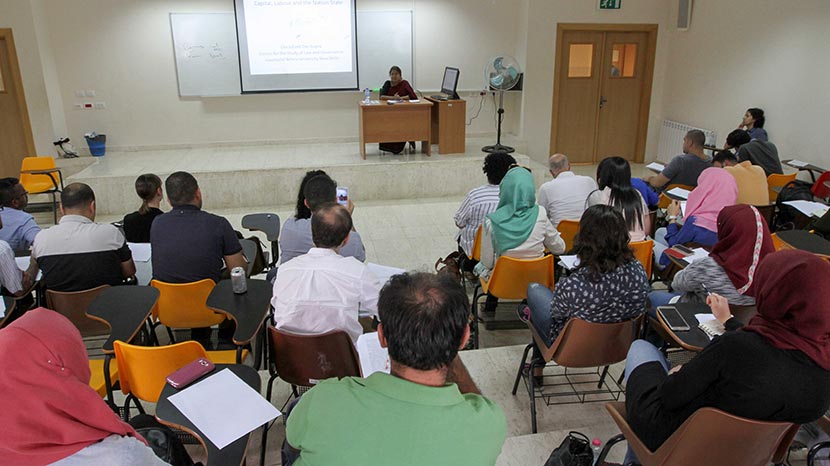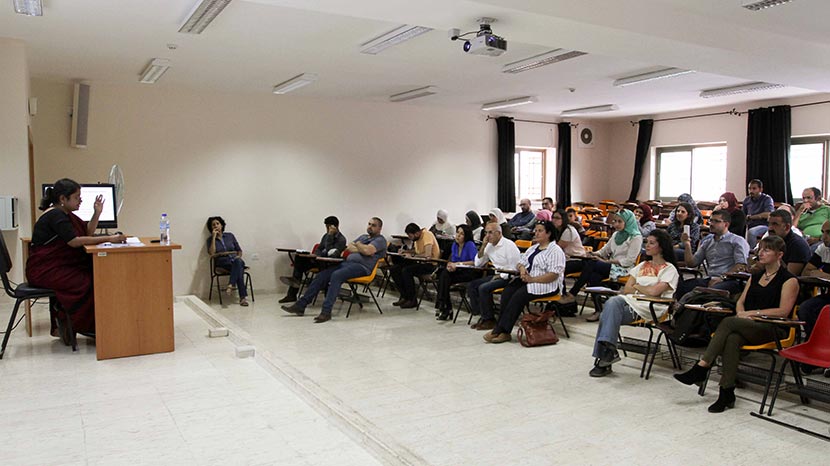Lecture Traces Changing Relationship between State, Labor and Capital
Jawaharlal Nehru University in New Delhi professor Chairashree Das Gupta addressed students and faculty on October 29, 2016 about the phases of globalization and its effects on capitalism, labor and the role of nation states.
Speaking at the invitation of Birzeit’s PhD program in Social Sciences, Das Gupta tracked the history of nation-states in shaping the macro-dynamics of capital and labor flows up to the current era. She explained contemporary perspectives on that progression.
The first perspective is linked to the role of trade, investment and huge transnational corporations in an integrated world that has dissolved nation-state boundaries, and made states lose control of their national economies, identities and culture at the hands of the global market.
The other perspective, according to Das Gupta, sets the long history of the emergence of the multi-polar world in context, refuting the concept of a world unified by markets alone and its concomitant proposition of “hegemonic” or “imperial” state in the dominant paradigms of globalization, hegemony and empire.
Das Gupta argued that nation-states are still effective during the current era of globalization, eluding to the police role of “hegemonic states” and their military and humanitarian interventions to maintain their capital and power.
The lecturer used India as an example of the real process of globalization, and the unbalances that occur between the neo-liberalized economy and the value of labor. Das Gupta traced the evolution of neo-liberalization in India, and the context of labor conditions in the historical trajectory of the dialectics between labor and the state.
Chirashree Das Gupta is Associate Professor at the Centre for the Study of Law and Governance at Jawaharlal Nehru University New Delhi. Her research and teaching has been focused on different dimensions of the political economy of state society relations and the role of institutions in the political economy of accumulation in trade, finance and industrialization, and public policy. She is currently working on the relationship between personal laws, tax codes and corporate governance in India.








